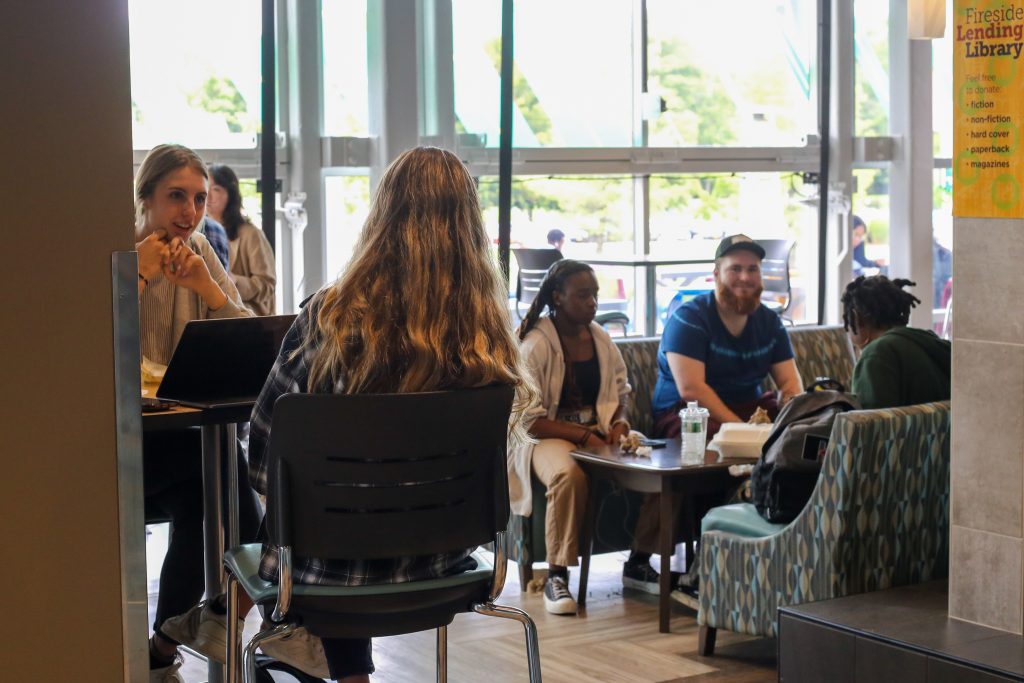Binghamton University’s Students of Concern (SOC) Committee saw more student cases in the fall 2021 and spring 2022 semesters than ever before.
The SOC Committee’s primary purpose is to help students implement plans in order to manage challenges they may be facing, and to help them stay enrolled at the University. The SOC serves all undergraduate and graduate students on and off campus, and works with BU’s Consultation, Advocacy, Referral and Education (CARE) Team — a campus resource that supports students’ needs throughout their personal and professional development.
This past academic year, the SOC assisted 293 student cases, with 84 percent of student cases from the SOC Committee’s fall 2021 semester, and 86 percent from the SOC Committee’s spring 2022 semester — successfully completing both semesters without any student withdrawals.
Colleen Rozelle, case management coordinator for the CARE Team, wrote that the committee works with around 150 to 300 students per academic year, with about 85 percent of those students successfully addressing their concerns.
The kinds of student cases referred to the SOC, either by CARE Team staff or other student services offices, include students who are facing complex problems or “students who demonstrate violence, threats to self or others or are significantly disruptive,” according to Rozelle.
“A hypothetical case might involve a student who is struggling with a failing relationship that has begun to cope by excessive drinking, which has led to a loss of motivation in classes and poor grades that now threaten a scholarship on which the student relies,” Rozelle wrote in an email. “Multiple issues have to be managed at once in this example. By bringing together staff from multiple student services offices to work as a case team with that student, the SOC can help the student create a coordinated solution that accounts for all of the inter-related concerns.”
The SOC Committee is a collaboration between several campus resources. Some members of the SOC have monitoring or emergency roles, such as Residential Life or Binghamton’s New York State University Police (UPD). Others offer services, such as the Services for Students with Disability (SSD) or TRIO Programs, which are designed to help students overcome financial, social or cultural barriers in higher education.
The greater BU community can also contribute to the SOC Committee’s work in detecting concerns about students. Peers, family, faculty and staff are able to submit a CARE Team Referral Form regarding a student they are concerned about. Then, either the CARE Team staff or another student services office will refer the student to the SOC Committee based on the student’s needs or concerns.
Pericles Andon, a senior double-majoring in sociology and anthropology, said both himself and his friends have had experiences with BU’s mental health care services. Andon stated that the University has a responsibility to try and identify students of concern, as well as provide resources for students who seek help themselves.
“Not just the moral responsibility, they probably also have a legal responsibility,” Andon said. “Certainly, [BU is] an institution for a lot of kids who are living on campus, and so their health and safety is certainly within the University’s purview. Whether or not these students should also feel comfortable to reach out to services on their own, I certainly hope they would be. I guess everyone has a responsibility to take care of themselves, but of course if you’re really in dire straits and you really need help, it’s not always easy to identify for yourself that you might need it, or know where to get help.”
For students seeking help through the University, Rozelle recommended the Binghamton Support Network. Students can search for their concerns on the Binghamton Support Network website in order to match with the on-campus resource right for them.



